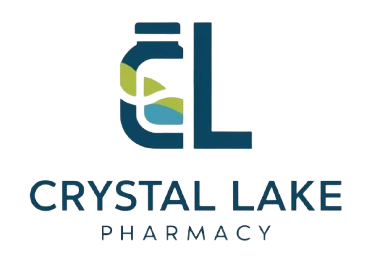No, most insurance companies don’t cover compounded medications because they aren’t FDA-approved and don’t fit into standard drug lists. Insurance companies worry about safety, costs, and the custom nature of these medicines.
If you need a special medicine made just for you, this lack of coverage can feel frustrating. Don’t worry – you’re not alone in this struggle. This article will explain why insurance companies say no to compounded drugs and share tips to help you get the medicine you need without breaking the bank.
What Are Compounded Medications?
The Basics of Custom Medicine
Compounded medications are special medicines made by pharmacists. They mix different ingredients to create a drug that’s perfect for one person. Think of it like a chef making a special recipe just for you.
These custom medicines help people who can’t use regular drugs from big companies. Maybe you’re allergic to a dye in a pill. Or perhaps your child needs liquid medicine instead of a hard tablet. Compounding solves these problems by making medicine that fits your exact needs.
When People Need Custom Medicines
People turn to compounded drugs for many reasons:
- Allergies: When you can’t take regular medicine because of bad reactions
- Special doses: When you need more or less medicine than what’s sold in stores
- Different forms: Like turning pills into creams or liquids
- Unavailable medicines: When companies stop making a drug you need
- Kids and pets: Making medicine taste better or easier to give
The Main Reasons Insurance Won’t Pay
FDA Approval Issues
According to the FDA’s official guidance on compounding, the agency does not verify the safety, effectiveness or quality of compounded drugs before they are marketed. This is the biggest reason insurance companies worry about paying for these medicines.
Regular drugs go through years of testing before the FDA says they’re safe. Compounded medicines skip this step. Insurance companies see this as risky because they don’t have proof the medicine works or is safe.
No Standard Drug Numbers
Every regular medicine has a special number called a DIN (Drug Identification Number). This number tells insurance companies exactly what the drug is, who made it, and how strong it is.
Compounded medications simply do not have DINs, making it more challenging to process these types of claims. Without these numbers, insurance computers can’t easily figure out what to pay for.
Cost Concerns
Research published by the National Center for Biotechnology Information shows that compounded medications increased by 76.2% from 2012 to 2013 in terms of cost. Insurance companies worry about these high prices because:
- Making custom medicine takes more time and skill
- Special ingredients cost more than mass-produced ones
- Each medicine is different, so costs vary a lot
- Some suppliers have forced up the cost of bulk powders in the quest for increased profits
The “One Bad Ingredient” Problem
Here’s a tricky rule that catches many people off guard. If your compounded medicine contains five ingredients and one is not covered under your insurance company, they will reject the entire medication for drug coverage.
It’s like ordering a pizza – if your insurance doesn’t cover one topping, they won’t pay for the whole pizza. This all-or-nothing approach makes coverage very hard to predict.
How Insurance Companies Make Coverage Decisions
Network Requirements
Many insurance plans will only pay for compounded medicines from certain pharmacies. Some require that the compounding pharmacy be in-network. Others will require that you pay more for out-of-network providers.
It gets even more confusing because a pharmacy might be in your network for regular medicines but out-of-network for compounded ones. This means you could get your blood pressure pills covered but not your custom pain cream from the same place.
Medical Necessity Rules
Insurance companies want proof that you really need the compounded medicine. They ask questions like:
- Is there a regular medicine that would work instead?
- Did you try other treatments first?
- Did your doctor explain why only this custom medicine will help?
Pre-Authorization Process
Some insurance companies require pre-approval before they’ll pay. If a patient needs a compounded medication long-term, the prescribing physician can call the patient’s insurance carrier for pre-approval. This process can take days or weeks, which delays getting your medicine.
The Real Impact on Patients
Financial Burden
Most compounded medications are under $200, but costs can be much higher for complex formulas. According to CDC data on prescription drug costs, in 2021, 9.2 million adults reported not taking medications as prescribed due to cost. When insurance won’t pay, patients face tough choices:
- Pay the full price out of pocket
- Go without the medicine they need
- Try to find a cheaper alternative that might not work as well
Health Consequences
When people can’t afford their compounded medicines, their health often gets worse. This creates a frustrating cycle where the medicine that could help them feel better is out of reach because of money.
Limited Pharmacy Options
Most compounding pharmacies don’t bill any insurance companies. This means patients often have to pay upfront and then try to get money back from insurance later – if they’re lucky.
What You Can Do to Get Coverage
Work With Your Pharmacy
Good compounding pharmacies understand insurance problems. Compounding pharmacies try to accommodate patients’ needs and their insurance coverage and will sometimes be able to remove the ingredient not covered (without affecting effectiveness) or by substituting an approved generically equivalent ingredient.
Your prescription medications specialist can also help by:
- Checking which ingredients your insurance covers
- Suggesting covered alternatives
- Providing paperwork for insurance claims
- Calling your insurance company on your behalf
Get Your Doctor Involved
Your doctor plays a key role in getting coverage. They can:
- Write letters explaining why you need the compounded medicine
- Call your insurance company to request pre-approval
- Document that regular medicines didn’t work for you
- Provide medical records supporting your need
Appeal Denied Claims
If insurance says no, don’t give up. You have the right to appeal their decision. Here’s how:
- Ask for the denial reason in writing
- Gather supporting documents from your doctor and pharmacy
- Submit a formal appeal with all your evidence
- Follow up regularly until you get an answer
Look for Alternative Coverage
Some options to explore include:
- Medicaid: May cover some compounded medicines
- Medicare Part D: Medicare only pays for compounded medications containing at least one ingredient that is a Part D-covered drug
- Patient assistance programs: Some drug companies offer help
- Health Savings Accounts: Use pre-tax money to pay for medicines
Special Coverage Situations
Medicare Coverage
Medicare has specific rules for compounded medicines. The medication cannot contain any ingredients covered under Medicare Part B. Self-administered compounded drugs are not covered. This means Medicare will only pay for certain types of compounded medicines.
TRICARE Coverage
Military families have different rules. TRICARE covers compound drugs if they’re safe, effective, and medically necessary. The military health system has a faster approval process than many civilian insurance plans.
State Medicaid Programs
Each state has different rules for Medicaid coverage of compounded medicines. New York Medicaid members may be eligible for Medicaid compounded prescription benefits and do not need approval from their doctor or healthcare provider before receiving these medications.
Tips for Managing Costs
Shop Around
Prices for the same compounded medicine can vary a lot between pharmacies. Call several places to compare costs before filling your prescription.
Ask About Payment Plans
Many compounding pharmacies offer payment plans or discounts for people paying cash. Don’t be shy about asking for help with costs.
Consider Timing
If you need the medicine long-term, work on getting insurance approval before your current supply runs out. This gives you time to appeal if they say no.
Keep Good Records
Save all receipts, insurance paperwork, and medical records related to your compounded medicine. You might need these for appeals or tax purposes.
Understanding the Insurance Landscape
Why Policies Are Changing
Insurance companies are making it harder to get compounded medicine coverage because of past problems. The Drug Quality and Security Act (DQSA) was passed by Congress in response to the 2012 fungal meningitis outbreak, as well as numerous other serious adverse events, including deaths, linked to poor quality compounded drugs.
This tragedy made everyone more careful about compounded medicines, including insurance companies.
The Business Side
Survey research suggests that compounded medications represent a relatively small portion of prescription medications, ranging from 2.3% to 12.2%. Data from the Congressional Budget Office on prescription drug spending shows that private health insurance, Medicare, and Medicaid accounted for 82% of total retail prescription drug spending in 2017. Because so few people use compounded medicines compared to regular drugs, insurance companies don’t feel pressure to improve coverage.
Future Outlook
As more people need custom medicines, insurance coverage might slowly get better. Patient advocacy groups are working to change policies and make coverage more fair.
Working With Your Healthcare Team
Building Your Case
To get insurance coverage, you need a strong medical case. Work with your healthcare team to document:
- Why regular medicines don’t work for you
- What symptoms the compounded medicine treats
- How your health improves with the custom medicine
- Any side effects from regular medicines
Communication is Key
Make sure your doctor, pharmacist, and insurance company all have the same information. Mixed messages can lead to denied claims and delays in getting your medicine.
Medication Therapy Management
Consider working with a medication therapy management specialist. These experts can help coordinate between your different healthcare providers and insurance company to improve your chances of getting coverage.
Safety and Quality Concerns
Why Insurance Companies Worry
Insurance companies have real reasons to be careful about compounded medicines:
- Because compounded drugs are not FDA-approved, the FDA does not verify their safety, effectiveness, or quality before they are marketed
- Quality can vary between different compounding pharmacies
- There’s less safety data compared to regular medicines
Finding Quality Compounders
To address insurance concerns, choose a high-quality compounding pharmacy that:
- Has proper state licensing and accreditation
- Follows strict safety standards
- Provides detailed documentation about your medicine
- Has good relationships with insurance companies
Alternative Solutions
When Insurance Won’t Budge
If you can’t get insurance coverage, consider these options:
- Generic alternatives: Ask if there’s a regular generic medicine that might work
- Different formulations: See if the medicine comes in a form your insurance covers
- Clinical trials: Look for research studies testing similar medicines
- Patient assistance: Contact the drug manufacturer for help programs
Working with 503B Facilities
Outsourcing facilities are subject to CGMP requirements, and they may distribute compounded drugs either pursuant to a patient-specific prescription or in response to an order from a health care provider. These facilities might have better insurance relationships than regular compounding pharmacies.
Final Thoughts
Getting insurance to cover compounded medications can feel like an uphill battle, but don’t lose hope. While most insurance companies are hesitant to pay for custom medicines due to FDA approval issues, safety concerns, and high costs, there are ways to improve your chances of getting coverage.
The key is working closely with your healthcare team, choosing a quality compounding pharmacy, and being persistent with insurance appeals. Remember that many compounding pharmacies will also provide a Universal Claim Form with each prescription so that the patient can submit it to their insurance company for possible reimbursement.
If you’re struggling with insurance coverage for compounded medications, don’t hesitate to reach out to a trusted compounding pharmacy in your area. They have experience navigating these challenges and can help you explore all your options for getting the custom medicine you need at a price you can afford.
Your health is worth fighting for, and with the right approach, you can often find a solution that works for both your medical needs and your budget.

